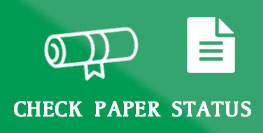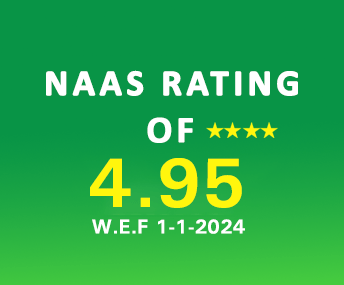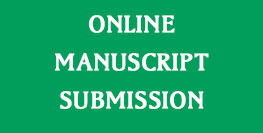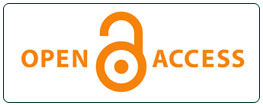The executive committee of the Society of Krishi Vigyan (www.iskv.in ) commits to the internationally accepted principles of publication ethics. All parties involved in the act of publishing i.e., author(s), editor(s), peer reviewers, society and the publisher) must agree upon standards of expected ethical behaviour. The ethics statements for the Journal of Krishi Vigyan, a half yearly publication with Print- ISSN: 2319-6432 and online ISSN: 2349-4433) are based on the Committee on Publication Ethics (COPE) and Code of Conduct guidelines available at www.publicationethics.org. To avoid any unfair practices in publishing activities (plagiarism, presenting false information, etc.) and to ensure a high quality of scientific publications and public recognition of the author’s scientific results, each member of the Editorial Board, publisher, authors, reviewers and institutions involved in the publishing process shall adhere to ethical standards, rules and regulations and take any reasonable steps to prevent their violations. Compliance with these ethical guidelines by all the parties ensures authors’ intellectual property rights, improves the quality of the Journal and excludes a possible misuse of copyright material in the interests of particular individuals.
Editor/Chief Editor Responsibilities
- Publication Decisions and Accountability: The editor of a journal is responsible for deciding which articles submitted to the journal should be published, and, moreover, is accountable for everything published in the journal. In making these decisions, the editor/chief editor may be guided by the policies of the journal’s editorial board and/or the policies of the publisher, as well as, by the legal requirements regarding libel, copyright infringement, and plagiarism. The editor may confer with other editors or reviewers when making publication decisions. The editor should maintain the integrity of the academic record, preclude business needs from compromising intellectual and ethical standards, and always be willing to publish corrections, clarifications, retractions, and apologies when needed.
- Fair Play: The editor should evaluate manuscripts for their intellectual content without regard to race, gender, sexual orientation, religious belief, ethnic origin, citizenship, or political philosophy of the author(s).
- Confidentiality The editor and any editorial staff must not disclose any information about a submitted manuscript to anyone other than the corresponding author, reviewers, potential reviewers, other editorial advisers, and the publisher, as appropriate.
- Disclosure, Conflicts of Interest, and Other Issues: The editor/chief editor will be guided by COPE’s Guidelines for Retracting Articles when considering retracting, issuing expressions of concern about, and issuing corrections pertaining to articles that have been published in the Journal of Krishi Vigyan. Unpublished materials disclosed in a submitted manuscript must not be used in an editor’s own research without the explicit written consent of the author(s). Privileged information or ideas obtained through peer review must be kept confidential and not used for personal advantage. The editor is committed to ensuring that advertising, reprint, or other commercial revenue has no impact or influence on editorial decisions.
- The editor should seek so ensure a fair and appropriate peer-review process. The editor/chief editor should recuse himself/herself from handling manuscripts (i.e. should ask a co-editor, associate editor, or other member of the editorial board instead to review and consider) in which they have conflicts of interest resulting from competitive, collaborative, or other relationships or connections with any of the authors, companies, or (possibly) institutions connected to the papers. The editor should require all contributors to disclose relevant competing interests and publish corrections if competing interests are revealed after publication. If needed, other appropriate action should be taken, such as the publication of a retraction or expression of concern.
Reviewer/Referee Responsibilities
- Contribution to Editorial Decisions: Peer review assists the editor in making editorial decisions and, through the editorial communication with the author, may also assist the author in improving the manuscript.
- Promptness: Any invited referee who feels unqualified to review the research reported in a manuscript or knows that its timely review will be impossible should immediately notify the editor so that alternative reviewers can be contacted.
- Confidentiality: Any manuscripts received for review must be treated as confidential documents. They must not be shown to or discussed with others except if authorized by the editor/chief editor.
- Standards of Objectivity: Reviews should be conducted objectively. Personal criticism of the author(s) is unacceptable. Referees should express their views clearly with appropriate supporting arguments.
- Acknowledgement of Sources: Reviewers should identify relevant published work that has not been cited by the author(s). Any statement that an observation, derivation, or argument had been previously reported should be accompanied by the relevant citation. Reviewers should also call to the editor’s attention any substantial similarity or overlap between the manuscript under consideration and any other published data of which they have personal knowledge.
- Disclosure and Conflict of Interest: Privileged information or ideas obtained through peer review must be kept confidential and not used for personal advantage. Reviewers should not consider evaluating manuscripts in which they have conflicts of interest resulting from competitive, collaborative, or other relationships or connections with any of the authors, companies, or institutions connected to the submission.
Author’s Responsibilities
- Reporting Standards: Authors reporting results of original research should present an accurate account of the work performed as well as an objective discussion of its significance. Underlying data should be represented accurately in the manuscript. A paper should contain sufficient detail and references to permit others to replicate the work. Fraudulent or knowingly inaccurate statements constitute unethical behaviour and are unacceptable.
- Originality and Plagiarism: The authors should ensure that they have written entirely original works, and if the authors have used the work and/or words of others that this has been appropriately cited or quoted. Further authors must ensure that plagiarism/ similarity in their manuscript should be less than 25 percent.
- Multiple, Redundant, or Concurrent Publication: An author should not in general publish manuscripts describing essentially the same research in more than one journal or primary publication. Parallel submission of the same manuscript to more than one journal constitutes unethical publishing behaviour and is unacceptable.
- Acknowledgement of Sources: Proper acknowledgment of the work of others must always be given. Authors should also cite publications that have been influential in determining the nature of the reported work.
- Authorship of a Manuscript: Authorship should be limited to those who have made a significant contribution to the conception, design, execution, or interpretation of the reported study. All those who have made significant contributions should be listed as co-authors. Where there are others who have participated in certain substantive aspects of the research project, they should be named in an Acknowledgement section. The corresponding author should ensure that all appropriate co-authors (according to the above definition) and no inappropriate co-authors are included in the author list of the manuscript, and that all co-authors have seen and approved the final version of the paper and have agreed to its submission for publication. All co-authors must be clearly indicated at the time of manuscript submission. Requests to add co-authors after a manuscript has been accepted will require approval of the editor.
- Hazards and Human or Animal Subjects: If the work involves chemicals, procedures, or equipment that has any unusual hazards inherent in their use, the author(s) must clearly identify these in the manuscript. Additionally, manuscripts should adhere to the principles of the World Medical Association (WMA) Declaration of Helsinki regarding research study involving human or animal subjects.
- Disclosure and Conflicts of Interest: All authors should disclose in their manuscript any financial or other substantive conflict of interest that might be construed to influence the results or their interpretation in the manuscript. All sources of financial support for the project should be disclosed.
- Fundamental Errors in Published Works: When an author discovers a significant error or inaccuracy in his/her own published work, it is the author’s obligation to promptly notify the journal’s editor or publisher and cooperate with them to either retract the paper or to publish an appropriate correction statement or erratum.
Publisher Responsibilities - Editorial Autonomy: The Journal of Krishi Vigyan is committed to working with editors to define clearly the respective roles of publisher and of editors in order to ensure the autonomy of editorial decisions, without influence from advertisers or other commercial partners.
- Intellectual Property and Copyright: We protect the intellectual property and copyright of the Journal of Krishi Vigyan, its imprints, authors and publishing partners by promoting and maintaining each article’s published version of record. The Journal of Krishi Vigyan ensures the integrity and transparency of each published article with respect to: conflicts of interest, publication and research funding, publication and research ethics, cases of publication and research misconduct, confidentiality, authorship, article corrections, clarifications and retractions, and timely publication of content.
- Scientific Misconduct: In cases of alleged or proven scientific misconduct, fraudulent publication, or plagiarism the publisher, in close collaboration with the editors, will take all appropriate measures to clarify the situation and to amend the article in question. This includes the prompt publication of a correction statement or erratum or, in the most severe cases, the retraction of the affected work.
Sanctions
In the event that there are documented violations of Publication Ethics and Malpractice Statement the following sanctions will be applied:
- Immediate rejection of the infringing manuscript.
- Immediate rejection of every other manuscript submitted to the Journal of Krishi Vigyan published by the Society of Krishi Vigyan by any of the authors of the infringing manuscript.
- Prohibition against all of the authors for any new submissions to journal published by the Society of Krishi Vigyan, either individually or in combination with other authors of the infringing manuscript, as well as in combination with any other authors. This prohibition will be imposed for a minimum of 24 months.
- Prohibition against all of the authors from serving on the Editorial Board of journal published by the Society of Krishi Vigyan.
- In cases where the violations of the Publication Ethics and Malpractice Statement are found to be particularly egregious, the publisher reserves the right to impose additional sanctions beyond those described above.






